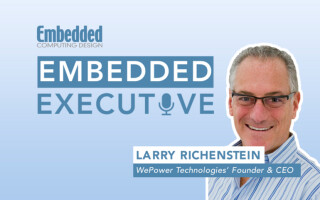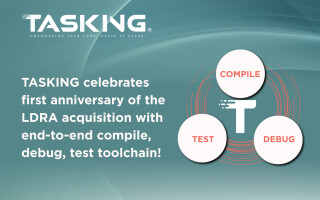Vodafone joins prpl Foundation with eye on advancing digital home and smart gateways
August 18, 2017

Vodafone?s vision falls very much in line with prpl Foundation initiatives.
The prpl Foundation recently announced that Vodafone has joined their membership.
The prpl Foundation is a non-profit foundation with the goal of driving innovation in a variety of Internet of Things (IoT) markets. The founders, Intel, Qualcomm, Broadcom, and Imagination Technologies, set out to accelerate the maturity of the IoT ecosystem by making interoperability easier and increasing the level of products’ built-in security. Since its inception, the foundation has grown to more than 30 member companies and 200-plus active engineers.
To achieve the “smart society” being ushered by the IoT, Art Swift, CEO of the prpl Foundation, identifies four key success criteria that the organization hopes to achieve:
- Secure from device to cloud
- Component interoperability not tied to a specific architecture
- Open source ecosystems
- Regulated by various industry requirements and government agencies
The prpl Foundation addresses these through engineering working groups, projects, and initiatives.
Given this focus, why would the prpl Foundation be relevant to Vodafone? Isn’t Vodafone a mobile network operator (MNO)?
Creating end-to-end smart home ecosystems
While it’s true that Vodafone is an MNO, you may not know that they are also the fastest growing fixed broadband provider in Europe.
Being a fixed broadband provider means driving innovation into the home. Doing this requires accelerating the time to market and interoperability of home gateways, customer premise equipment (in-home “smart” devices), and innovative applications that people want to use.
As a result, Vodafone’s vision falls very much in line with prpl Foundation initiatives. As an example, Swift mentions OpenWrt software community, an open-source Linux derivative operating system (OS) for networked devices that originally sprouted from hobbyist codebases that enabled makers to flash their devices to new add features to in-home networks. Today, OpenWrt is increasingly being embraced by chip and equipment manufacturers, so much so that it even serves as the basis of the software development kits (SDKs) for many commercially available chips and routers.
The highly configurable OpenWrt OS strips out enterprise- and desktop-oriented features, replacing them with valuable networking components. This is one way in which the prpl Foundation has become a bridge between necessary carrier features and the developer community, as additional packages can be added for use in carrier environments. This is understandably of interest to Vodafone, who is also concerned with equipment interoperability at both the electrical and software application layers.
To this end, the prpl Foundation provides a vehicle for Vodafone to communicate their roadmap needs to the chip, equipment, and open source ecosystems. Vodafone and others envision also number of new services that can increase revenue and subscriber adoption, such as the concept of an app store for the smart home.
Other working groups the prpl Foundation focuses on that address the smart home include:
- Security working group: Developing security building blocks for IoT starting at the home gateway and working in both directions – into the home and out to the cloud
- Carrier interest group: Consists of carriers, CPE, and gateway groups focused on advancing chip/silicon capabilities and open source that supports them
- Prplwrt: Enabling carrier-grade features to complement OpenWrt
- API group: For standardization of APIs for IoT applications and OpenWrt
- Benchmarking group: Looking at embedded hypervisors for embedded virtualization for the IoT
Given the fragmentation around the smart home and related IoT products, services, and applications, the prpl Foundation is working to bring ecosystems together that are able to identify and adopt a common approach.
For more information on the OpenWrt open source initiative, visit https://openwrt.org. An OpenWrt summit will also be held in Prague in September. For details, visit http://openwrtsummit.org.





